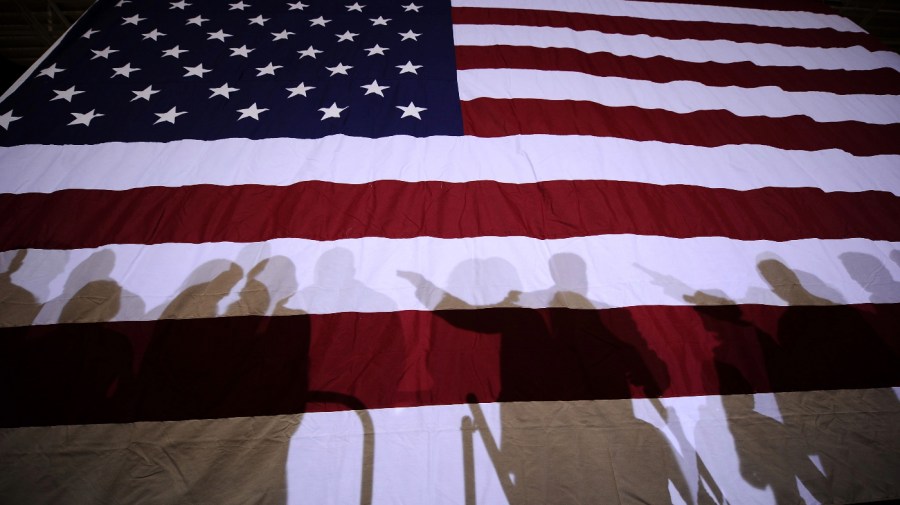
For a movie nerd who’s known to stay up all night streaming, the Sundance Film Festival is an incredible experience. Some 17,000 films were shown this year.
It’s impossible to take them all in. But one movie debut, Titus Kaphar’s “Exhibiting Forgiveness,” was an experience I will remember forever.
I got to attend a small group discussion where Kaphar, who I have gotten to know as a friend, talked about writing and directing his semi-autobiographical film. The movie comes with a warning label; reviewers have called it “harrowing” and triggering,” and it is. It’s the story of an artist whose mother encourages him to reconcile with an estranged father struggling with addiction.
The story resonated deeply because that could have been me. That was me.
My dad, a Navy veteran, got caught up in the crack epidemic of the late 1980s. His battle with substance abuse kept him away from our family for 30 years. Those who know me know I was born in a homeless shelter. My incredible mom raised four of us kids, with help from her family and from a social safety net and public schools that allowed us to grow into the people we are today.
I won’t spoil the film for you — you should go see it — but the issues it raises about forgiveness, and whether it’s necessary for us to move forward, are profound — and not just for family life.
Because I’ve chosen a life in politics and public service, I naturally think of parallels with today’s political climate. I think about grace for my dad, and I also think about whether we can make common cause with other people whose behavior has disappointed or even infuriated us.
Many Americans, myself included, believe the presidential election in 2024 is an existential crisis for our democracy. Looking at it through that lens is clarifying. Many of our political differences and disagreements fall away if we believe there are two camps we can join now: people who want to preserve our democracy and those whose behavior and rhetoric threaten to destroy it.
The defining feature of the second camp is its embrace of “the big lie” that Donald Trump won the 2020 election. And there are people in that first camp, the one I believe will save us, that we might never have thought we could cooperate with — or forgive.
So, I think about what would happen if we made common cause with those folks now. I don’t know if Democratic Congressman Ruben Gallego (Ariz.) and Republican stalwart Cindy McCain have any kind of relationship, but I know that despite two lifetimes spent in opposing parties, they both reject “the big lie.” Maybe they can forgive past differences to unite to defeat election-denying Senate candidate Kari Lake.
Maybe progressives like me can find common ground with the ultraconservative former Rep. Liz Cheney (R-Wyo.).
Maybe I, a one-time Obama delegate who worked to defeat former presidential candidate Sen. Mitt Romney (R-Utah), can forgive him for all our past disagreements if we must work together to save democracy. If he knew me, would he forgive me for doing everything I could, at the time, to beat him?
This is what I think now: Sometimes we have to let go of our worst assumptions about people. And forgiveness, while challenging, can sometimes be the first step toward a conversation that leads to openness for people to change. Especially when we agree that a greater good is at stake. Maybe that means for your family, and maybe it means for your country.
I know this view will be unpopular with some people, including a few whom I consider to be my most like-minded political allies. But this is the call I’m making today, to think about the greater good.
That’s a big takeaway from one movie. But this is what great art does: It makes you think. “Exhibiting Forgiveness,” as a film, does not pretend to solve all of our problems. But it may serve as a blueprint towards a brighter future, and challenge the viewer to make a decision.
This one is mine.
Svante Myrick is the president of People For the American Way.
Copyright 2024 Nexstar Media Inc. All rights reserved. This material may not be published, broadcast, rewritten, or redistributed.














